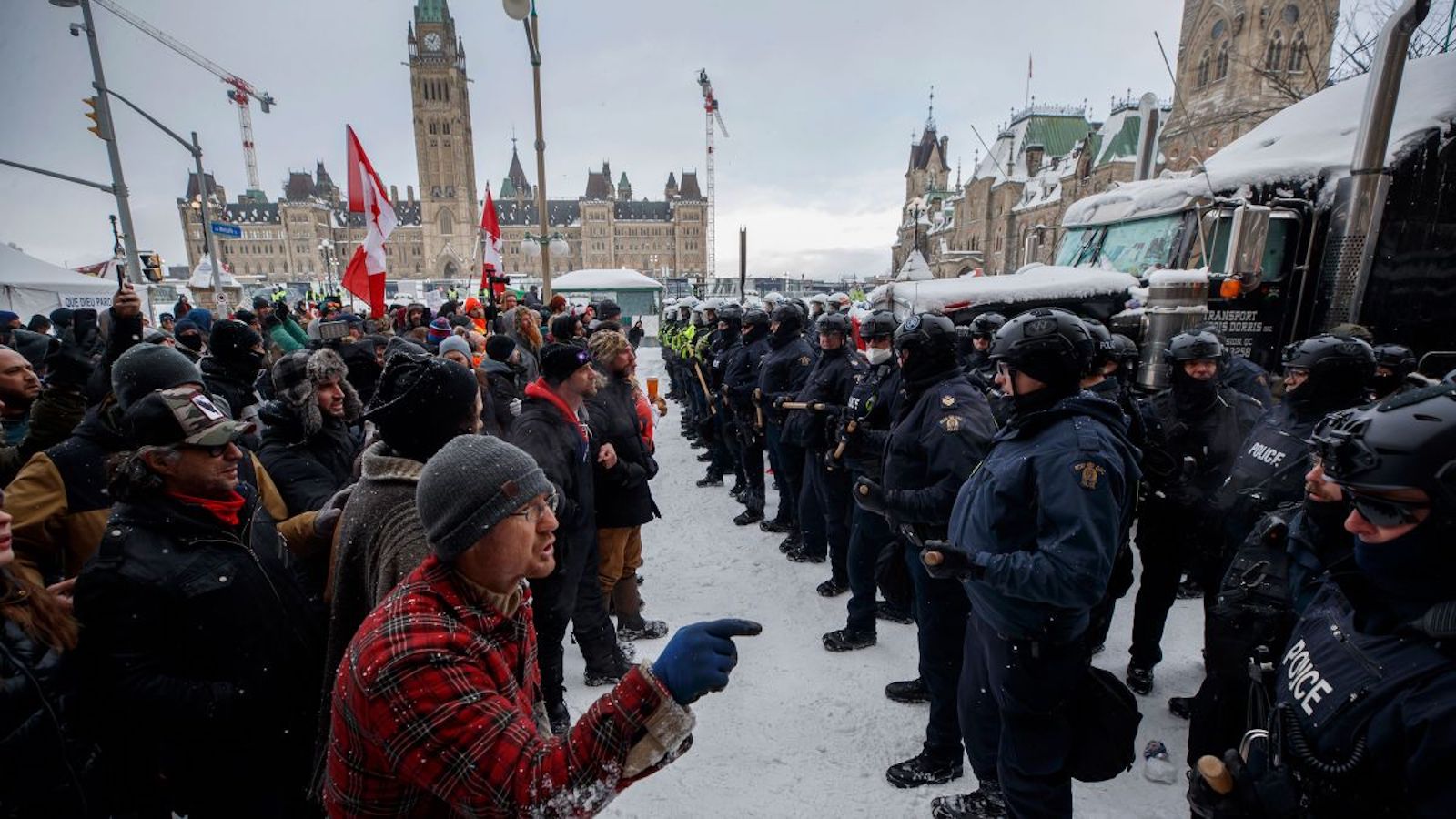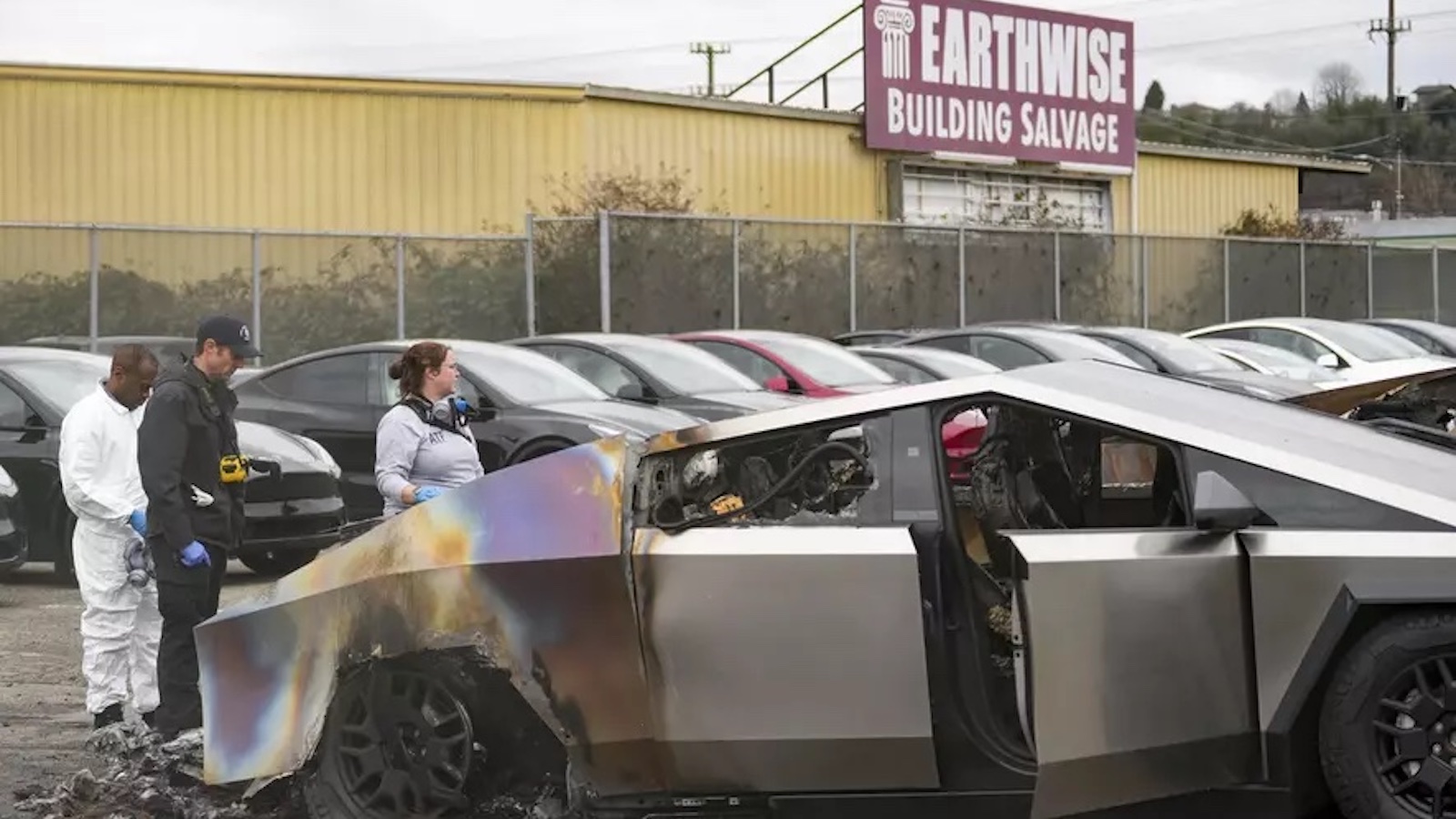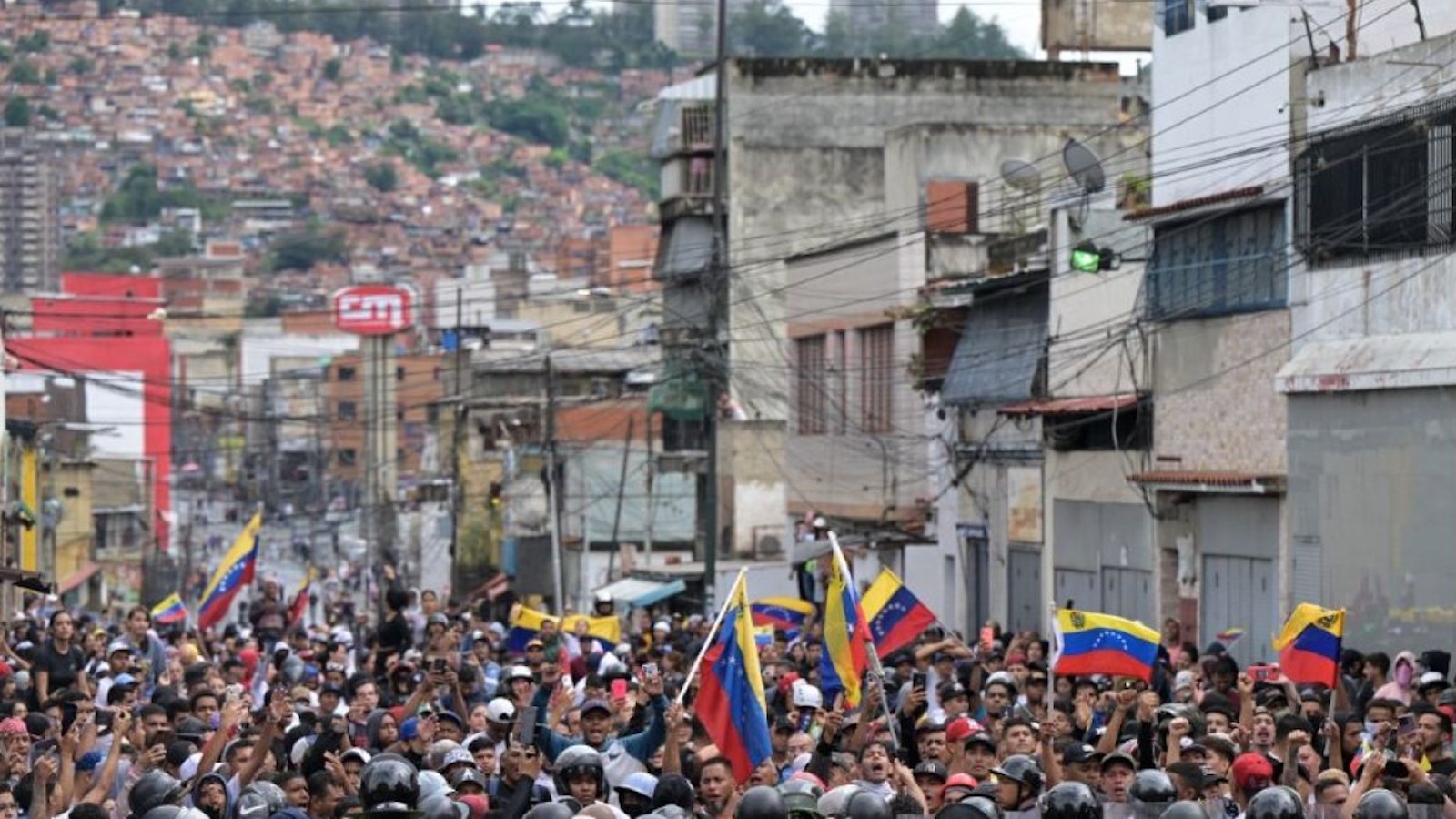
Ottawa Protest Proves that DC Shouldn’t Be a State
The tragedy of Canada, the joke goes, is that she could have had American movies, British comedy, and French cooking; but she instead has French movies, American comedy, and British cooking. The real tragedy however, is that, overshadowed by its three cultural forebears, Canada has little in the way of a unique identity. There is, though, one truly unique aspect of the Great White North: It is the only federation without a special subdivision for its capital. Rather than a badge of honor, however, this distinction brought Canada to crisis during the recent Freedom Convoy. Canada’s struggles should serve as a warning to the US against DC-statehood.
The US Constitution, unlike Canada’s, allots for “the seat of the Government of the United States” a “district (not exceeding ten miles square)” over which the national government exercises complete authority. That might seem arbitrary at first, but, as Canada has shown, giving the federal government its own stomping grounds turns out to be essential.
The framers of the Constitution knew the importance of this provision. “Without it,” James Madison argues in The Federalist No. 43, “…the public authority might be insulted and its proceedings interrupted with impunity”—as the Canadian Parliament discovered when regiments of semi-trucks descended on Ottawa, blocking vital arteries, blaring 150-decibel horns, and demanding the government be dissolved.
Madison foresaw that furnishing the national capital would be too “too great a public pledge” for any single member of the federation. Indeed, the City of Ottawa was “unprepared for the sophisticated tactics, discipline, and logistical abilities” of truckers engorged on box macaroni and Timmies.
The Framers of the US Constitution not only feared that the host state would prove incompetent, but also that it might unduly influence the national government. The party running Ontario, the Conservative Party of Canada (CPC), sits in opposition to the Liberal government of Parliament. Some of the CPC publicly backed the Freedom Convoy, including the current party leader. Bending to political winds, the Premier of Ontario dithered in responding to the protest.
To sink the convoy, Prime Minister Justin Trudeau suspended civil liberties. He froze bank accounts totaling $3.2 million CAD ($2.5 million USD) without court orders—in a modern economy, effectively locking dissenters in “digital jail.” He banned public assembly. He accused a Jewish MP of “stand[ing] with people who wave swastikas.” When the national government lacks an autonomous seat, it has a great excuse to nab exceptional power: It has to be able to secure itself, doesn’t it?
In theory, that Congress directly governs Washington DC should prevent both an Ottawa-style occupation and a Trudeau-style seizure of power. DC should have full autonomy to protect the federal government from protestors. There’s nothing keeping Congress from empowering the United States Capitol Police to prevent another Jan 6th incident. It should start by filling their 447-officer shortfall.
There have been attempts, including a 2021 bill, to reduce the district to a few blocks, with the remainder spun into a new state. Democrats have pushed these schemes as part of State 51: The Search for More Senators. Yet these short-sighted moves would render the national government vulnerable should what happens in Ottawa not stay in Ottawa.
To secure itself, Congress may need to exercise more direct control over DC, not less. Yet Washington, a polis with a half century of home rule, will likely not comply easily. To extinguish the DC statehood movement, Congress may need to compromise by bestowing Washingtonians legislative representation.
Regardless, Congress must maintain an autonomous federal district. If DC were a state, what would prevent a sympathetic Governor from allowing protests to disrupt the federal government? In turn, what would stop the federal government from declaring a state of emergency to run roughshod over dissidents? It may seem paranoid, but in a time of rising polarization and collapsing norms, barely a year since the Capitol insurrection, America must guard against federal heteronomy and despotism.
Free the People publishes opinion-based articles from contributing writers. The opinions and ideas expressed do not always reflect the opinions and ideas that Free the People endorses. We believe in free speech, and in providing a platform for open dialogue. Feel free to leave a comment.




Matthew
In my view, the people living in D.C. should have the protections and privileges and immunities of being a citizen of a State of the Union. For this reason, I feel that the non-government areas of D.C. should be turned over to Maryland (the State from which modern D.C. was originally donated from). However, in light of the above article. I could see Congress retaining control over the roadways in and out of DC and between federal government buildings.
Another option, would be to move the capitol of the United states, more centrally located rather than leaving it on the East Coast, and build a new capitol city. In the new plan, require ONLY buildings necessary for the operation of government to be constructed within the District and require everyone to live outside of the new District Capitol. That way no citizens are denied the benefits they would have from living in a State (including voting rights for Congress), The federal government would have full control over its own affairs without the interference of state governments, and private institutions like museums, restaurants, hotels, etc, would likewise have to be outside the federal district so no businesses would operate within the district (although they could deliver into the district, they just wouldn’t be based or located therein.
An alternative is to restore modern DC to the type of district I described above, but that would be problematic as many businesses and long time residents would need to be relocated which has it’s own set of problems and likely would encounter resistance from local residents whereas, a large section of farm or ranch land could be purchased in the middle of the country somewhere and converted to a new capitol without the need to relocate thousands of residents and existing businesses.
Chris Partridge
Excellent, thought provoking article Yuzhou.